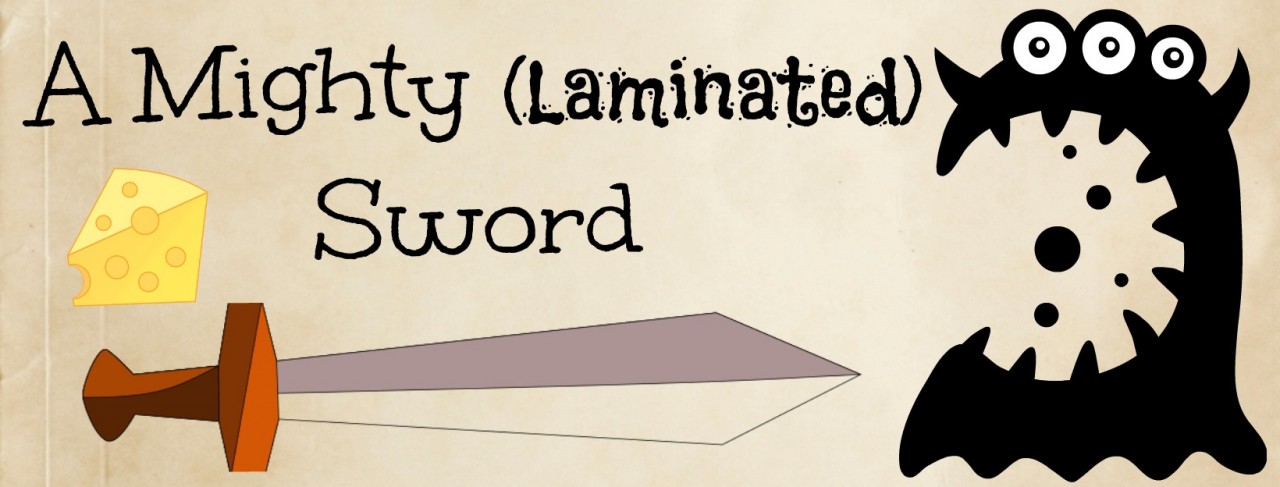A preschool teacher consulted with me about a student who was struggling with behavior; one of most intense issues she’d ever seen. The little girl would bite and punch and roll on the floor, and it was a full-time job just to keep her in the classroom. She also had a severe communication impairment. She talked and you could understand the words, but there wasn’t any meaning behind them. She couldn’t tell you about her favorite movie or answer beyond a simple question. For four years, every adult and child had to guess what she wanted to say.
“We’ve got a lot of things started, a lot of plans,” she explained, rattling off all our favorite behavior acronyms: FBA, BIP, FERB, etc. The one thing she didn’t say: AAC - Alternative and Augmentative Communication. The student had a severe communication impairment; couldn’t that be a big part of why she’s having behavior issues? Did they consider AAC and giving her a voice?
“But she can talk,” the teacher said. “The issue isn’t talking, she just wants control.”
Before I could jump on my soap box, another preschooler yelled with perfect dramatic timing:
“I don't wanna tootie!” edged with the desperation of a preschool boy who would probably explode if he had to eat an animal cracker cookie.
“This is what we have,” said the assistant, pointing to the snack menu visual. He screwed up his face. “Do you want anything?”
“My teez.”
“You have cheese in your lunchbox?” He nodded. “Go and get it.”
And life went on. Crisis diverted! Communication saved the day! And wouldn’t you know, he was awfully and age-appropriately controlling. It’s communication that gets us what we want: acceptance, love, and cheese. Adults are known to throw fits when they can’t communicate their order in a drive-thru. Imagine four years of being stuck in the Taco Bell drive-thru and never getting to talk to someone. You’d want to hit someone too.
In another preschool, I got to observe a program where AAC was wrapped around the entire classroom. Brightly colored AAC boards were taped to the walls and hung from the cabinets. Every kid, whether they needed to use it or not, had a core word communication board at their elbow and so did all the adults. I sat down next to one student, and the teacher smirked.
“I don’t know if you want to sit next to him.”
Oh no, I thought, panicking, Did he have pink eye? Was I going to get pink eye?!
“He’s our typical peer.”
This little guy, brand new to preschool and a little wary of everything around him, was talking with the communication board like he’d used it for a month. He didn’t have a communication impairment, and he wasn’t anyone’s idea of a typical AAC user. But we’ve all seen the new preschoolers cry and shut down at their first-ever activities, and he was using an alternative way of communicating and interacting with his brand new environment and classmates. Maybe he only needed it that day, maybe he’ll never want to use AAC again, but he’ll remember feeling safe and included in preschool from the beginning. Communication, in any form, saved the day.
According to their speech-language pathologist, Jenni, including robust and thoughtful AAC has been amazing:
“They know that they give them a voice… We've had so many days that we've just looked at each other and shouted, "Did you see that?", "Did that really just happen?" It's been so fun to watch these kiddos learn... I can't believe how quickly she is learning. She carries her board around with her like it's a mighty sword.”
So teachers, therapists, administrators everywhere, (I can’t believe I’m saying this): all students must have swords*, whatever sword(s) fit them best. Make sure they have their swords everywhere. Make time for sword practice. Seek sword specialists, talk to other sword users. Don't favor one type of sword over another, because it was never about the sword, but the person wielding it.
Expect swords to be mighty and all students have strength to wield them, and they will conquer dragons.
*the sword is communication, all types of communication, for those who still aren't into my ridiculous analogies
“We’ve got a lot of things started, a lot of plans,” she explained, rattling off all our favorite behavior acronyms: FBA, BIP, FERB, etc. The one thing she didn’t say: AAC - Alternative and Augmentative Communication. The student had a severe communication impairment; couldn’t that be a big part of why she’s having behavior issues? Did they consider AAC and giving her a voice?
“But she can talk,” the teacher said. “The issue isn’t talking, she just wants control.”
Before I could jump on my soap box, another preschooler yelled with perfect dramatic timing:
“I don't wanna tootie!” edged with the desperation of a preschool boy who would probably explode if he had to eat an animal cracker cookie.
“This is what we have,” said the assistant, pointing to the snack menu visual. He screwed up his face. “Do you want anything?”
“My teez.”
“You have cheese in your lunchbox?” He nodded. “Go and get it.”
And life went on. Crisis diverted! Communication saved the day! And wouldn’t you know, he was awfully and age-appropriately controlling. It’s communication that gets us what we want: acceptance, love, and cheese. Adults are known to throw fits when they can’t communicate their order in a drive-thru. Imagine four years of being stuck in the Taco Bell drive-thru and never getting to talk to someone. You’d want to hit someone too.
In another preschool, I got to observe a program where AAC was wrapped around the entire classroom. Brightly colored AAC boards were taped to the walls and hung from the cabinets. Every kid, whether they needed to use it or not, had a core word communication board at their elbow and so did all the adults. I sat down next to one student, and the teacher smirked.
“I don’t know if you want to sit next to him.”
Oh no, I thought, panicking, Did he have pink eye? Was I going to get pink eye?!
“He’s our typical peer.”
This little guy, brand new to preschool and a little wary of everything around him, was talking with the communication board like he’d used it for a month. He didn’t have a communication impairment, and he wasn’t anyone’s idea of a typical AAC user. But we’ve all seen the new preschoolers cry and shut down at their first-ever activities, and he was using an alternative way of communicating and interacting with his brand new environment and classmates. Maybe he only needed it that day, maybe he’ll never want to use AAC again, but he’ll remember feeling safe and included in preschool from the beginning. Communication, in any form, saved the day.
According to their speech-language pathologist, Jenni, including robust and thoughtful AAC has been amazing:
“They know that they give them a voice… We've had so many days that we've just looked at each other and shouted, "Did you see that?", "Did that really just happen?" It's been so fun to watch these kiddos learn... I can't believe how quickly she is learning. She carries her board around with her like it's a mighty sword.”
So teachers, therapists, administrators everywhere, (I can’t believe I’m saying this): all students must have swords*, whatever sword(s) fit them best. Make sure they have their swords everywhere. Make time for sword practice. Seek sword specialists, talk to other sword users. Don't favor one type of sword over another, because it was never about the sword, but the person wielding it.
Expect swords to be mighty and all students have strength to wield them, and they will conquer dragons.
*the sword is communication, all types of communication, for those who still aren't into my ridiculous analogies


